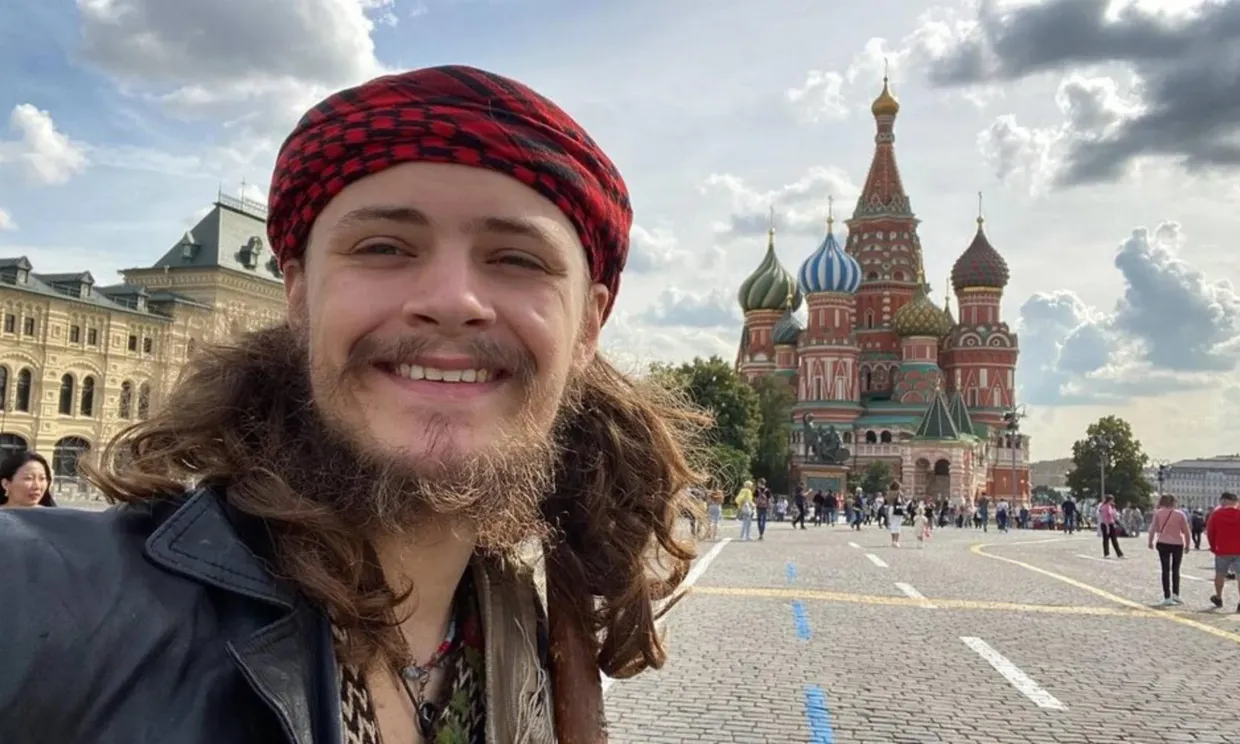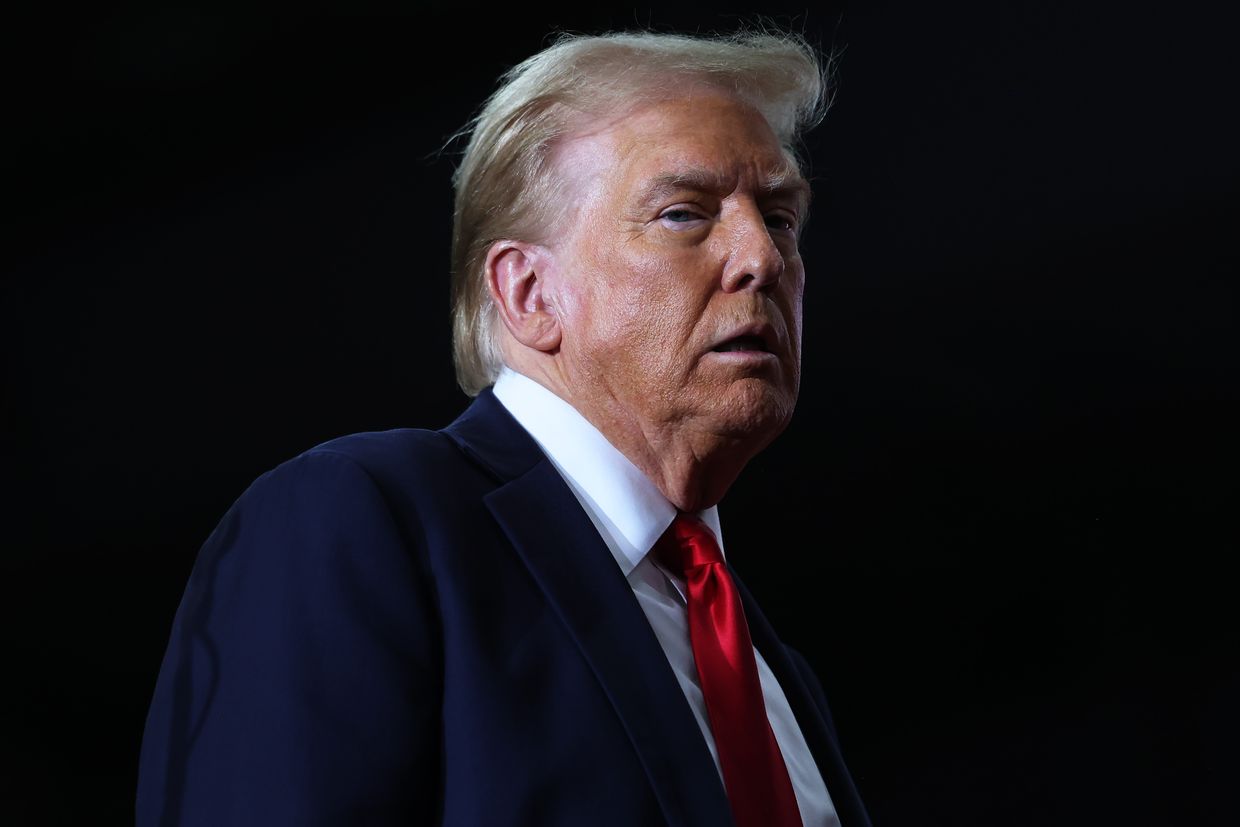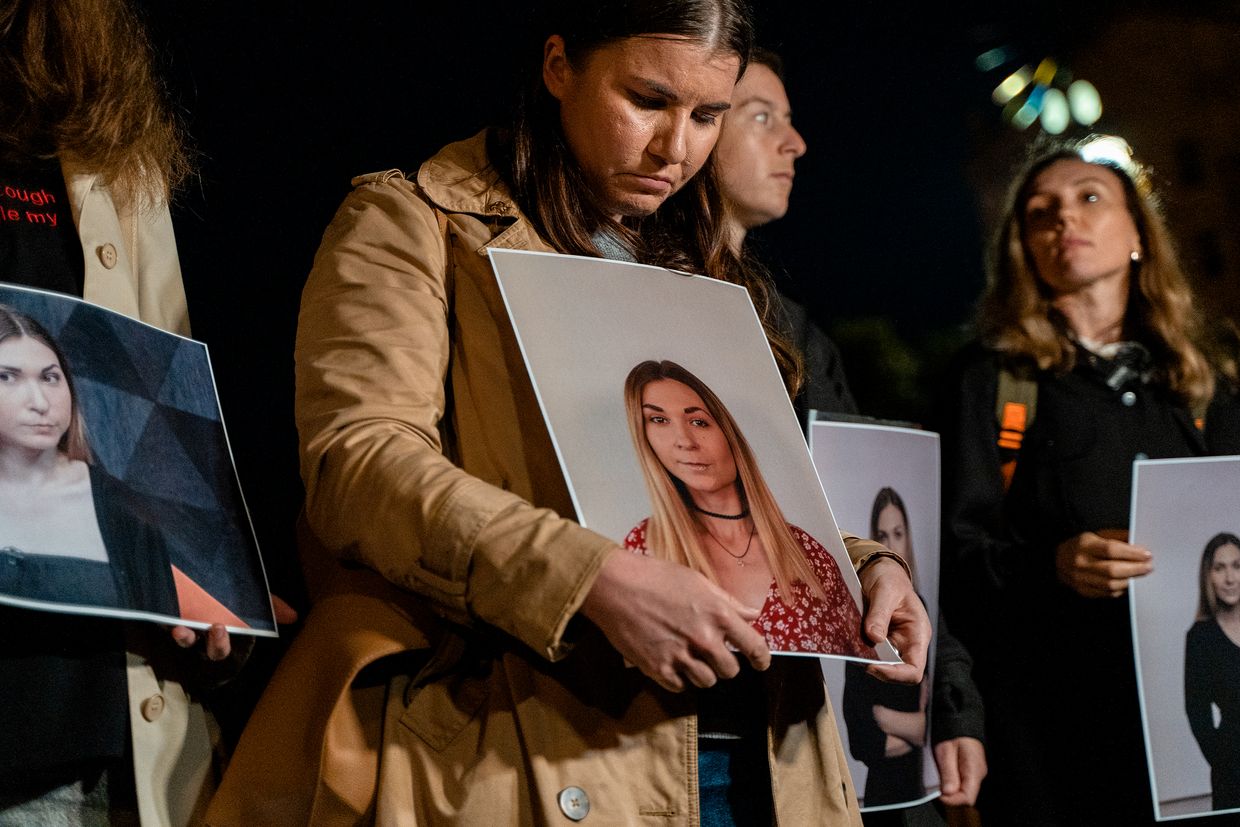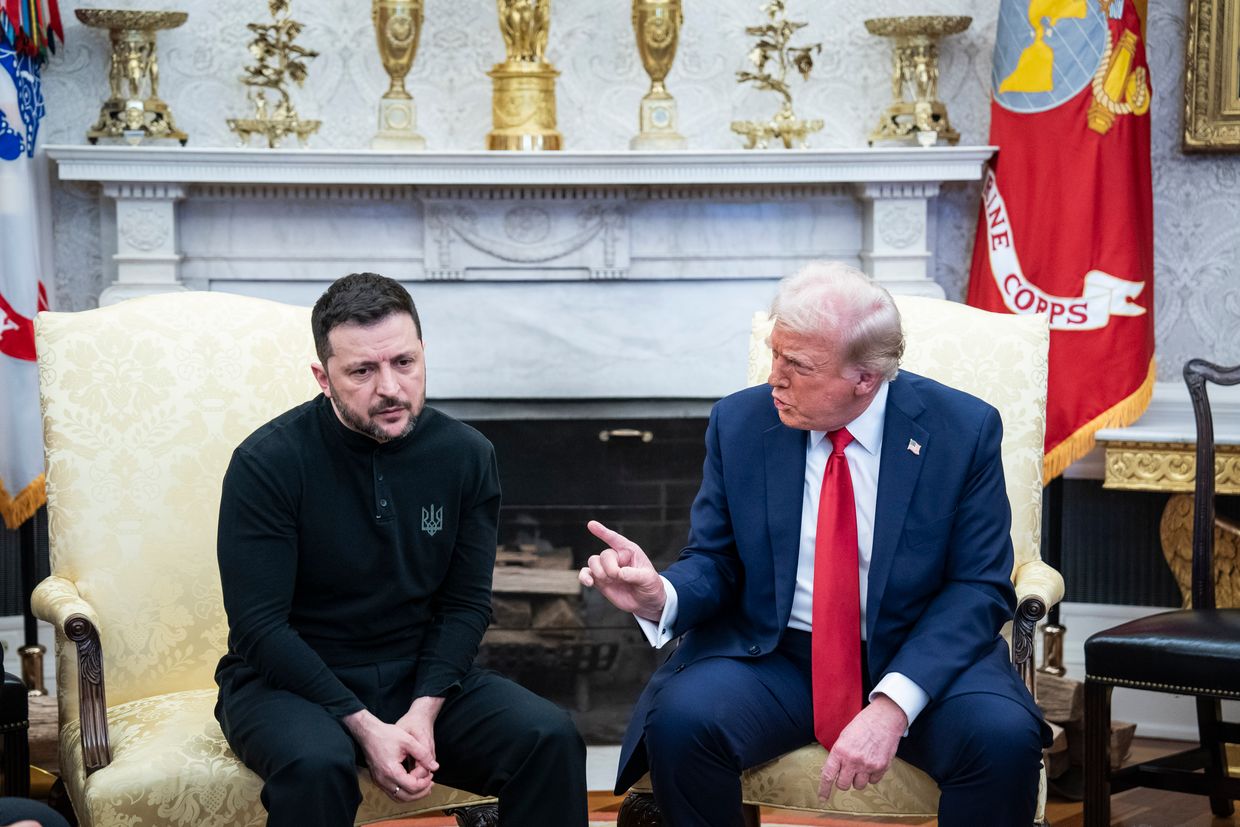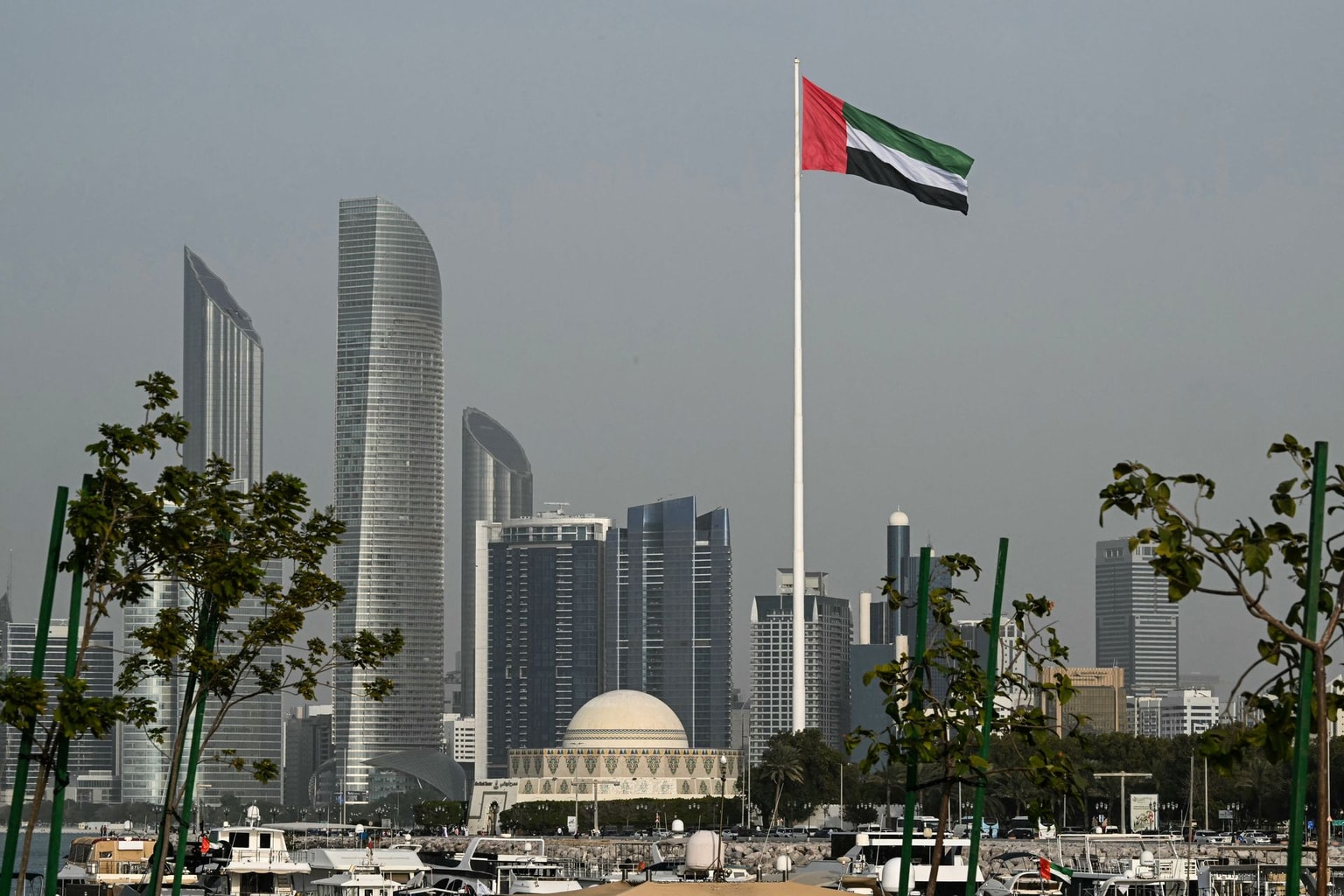Ukraine war latest: High-ranking Russian general killed in car bombing near Moscow amid Witkoff-Putin meeting

Key developments on April 25:
- High-ranking Russian general killed in car bombing near Moscow, as Witkoff meets with Putin
- Full text of US peace proposal at odds with Ukrainian, EU positions, Reuters reports
- Trump says Crimea 'will stay with Russia,' blames Ukraine's NATO aspirations for war
- Putin, US envoy Witkoff discuss direct talks with Ukraine, Kremlin aide says
- UK may abandon plans to deploy large troop force to Ukraine, the Times reports
A senior Russian general has been killed in an explosion in Moscow, a spokesperson for the Investigative Committee of Russia confirmed on April 25.
According to Russian state media, a car exploded in the yard of a residential building in the Russian city of Balashikha, Moscow Oblast, killing one person.
The Investigative Committee of Russia later identified the deceased as Lieutenant General Yaroslav Moskalik, deputy chief of the main operations directorate of Russia's army.
"According to available data, the explosion occurred as a result of the detonation of a homemade explosive device," it added.
A criminal case has been opened. Ukraine has not commented on the attack.
The incident took place as U.S. Special Envoy Steve Witkoff arrived in Moscow earlier in the day to meet Russian President Vladimir Putin.
There is limited publicly available information about Moskalik. He was listed as a member of the Russian delegation during the 2015 Normandy Format talks, set up to find a resolution to Russia's war in eastern Ukraine.
Radio Free Europe/Radio Liberty reported that Moskalik was also involved in the high-level Normandy Four meeting in 2019, as well as in talks with Syrian dictator Bashar al-Assad a year earlier, who has since been ousted.
While Ukraine has not been officially linked to the recent car bombing, Kyiv has previously targeted Russian officials who play a key role in Russia's full-scale invasion.
Igor Kirillov, the head of the Russian Armed Forces' radiation, chemical, and biological defense troops, was killed in an explosion at a residence in Moscow in December 2024, a source in the Security Service of Ukraine told the Kyiv Independent.
Mikhail Shatsky, a Russian expert involved in modernizing missiles launched against Ukraine, was shot dead near Moscow on Dec. 12, a Defense Forces source told the Kyiv Independent.
Aleksey Kolomeitsev, a Russian colonel who trained specialists in the use of attack drones, was killed in the city of Kolomna in Moscow Oblast, Ukraine's military intelligence (HUR) reported on Sept. 28.
Full text of US peace proposal at odds with Ukrainian, EU positions, Reuters reports
Reuters on April 25 published the full text of a U.S. peace proposal presented by Special Envoy Steve Witkoff to European officials in Paris on April 17, offering the clearest look yet at the Trump administration's plan to end Russia's full-scale war in Ukraine.
The publication also released a counterproposal delivered by Ukrainian and European officials earlier this week. The documents expose disagreements on critical issues, including territorial concessions, sanctions relief, security guarantees, and the size of Ukraine's armed forces.
The U.S. draft includes a provision to legally recognize Russia's 2014 annexation of Crimea and de facto accept Russian control over Ukrainian territory seized since 2022.
In contrast, the European-Ukrainian proposal insists that territorial questions should only be addressed after a full ceasefire and start from the basis of the line of control.
Security guarantees also remain a key dividing line. The U.S. text offers vague language about a "robust security guarantee" for Ukraine to be provided by unspecified European and "friendly" countries. It also requires Kyiv to abandon its bid to join NATO.
The Ukrainian-European proposal calls for reliable, enforceable guarantees from allies — including the U.S. — and rejects limits on Ukraine's military or its ability to host allied forces.
The documents also diverge sharply on sanctions policy. The U.S. plan calls for lifting sanctions imposed on Russia since 2014, including those related to Crimea.
The Ukrainian-European text proposes sanctions relief only after establishing a "sustainable peace" and includes mechanisms to reimpose them if Russia violates any agreement.
Kyiv also calls for the return of all deported and illegally displaced Ukrainian children, which the U.S. proposal does not mention.
While proposing concessions on core political issues, the U.S. plan does include conditions for Moscow.
It demands that Russia return occupied in 2022 Zaporizhzhia Nuclear Power Plant to Ukrainian control, under U.S. oversight, to provide power to cities on both sides of the front line.
The plan also calls for restoring Ukrainian control over the Kinburn Spit, providing secure passage across the Dnipro River, and reclaiming occupied areas of Kharkiv Oblast — around 200 square kilometers (77 square miles) currently held by Russian forces.
On the economic front, the U.S. draft outlines a future agreement on cooperation and reconstruction, pledging financial support for Ukraine's recovery and infrastructure development.
Ukraine has already accepted a 30-day ceasefire proposal introduced by the U.S. in March, provided Russia reciprocates. Moscow has so far rejected the ceasefire and continues offensive operations across the front.
Despite promising to end the war swiftly, U.S. President Donald Trump has yet to impose new sanctions or take other steps to pressure the Kremlin.
Trump says Crimea 'will stay with Russia,' blames Ukraine's NATO aspirations for war
U.S. President Donald Trump reiterated on April 25 that he believes Ukraine's desire to join NATO triggered Russia's full-scale invasion, adding that Crimea "will stay with Russia."
In an interview with Time magazine, Trump said, "If Crimea will stay with Russia — we have to only talk about Crimea because that's the one that always gets mentioned."
"Crimea will stay with Russia. And (President Volodymyr) Zelensky understands that, and everybody understands that it's been with them for a long time. It's been with them long before Trump came along."
The comments come as the Trump administration intensifies efforts to broker a peace agreement between Russia and Ukraine.
Any move by the Trump administration to formally recognize it as Russian territory would contradict a decade-long bipartisan consensus in Washington and international law.
The U.S. president also repeated his claim that Ukraine provoked the war by pursuing NATO membership.
"I think what caused the war to start was when they started talking about joining NATO," Trump said.
That assertion contradicts the historical record.
Ukraine has publicly expressed interest in joining NATO since the early 2000s, including during the 2008 Bucharest Summit, without triggering war.
Russia's full-scale invasion in 2022 was widely condemned as an unprovoked act of aggression that violated international law and Ukraine's sovereignty.
President Volodymyr Zelensky has firmly rejected any peace deal involving territorial concessions.
"This violates our Constitution. This is our territory, the territory of the people of Ukraine," he said on April 22.
Trump has denied that the U.S. is pressuring Ukraine to accept Crimea's annexation, but has also criticized Zelensky's refusal to consider it as "harmful to the peace negotiations."
He previously claimed the U.S. has a deal with Russia and only needs to reach one with Ukraine, adding that Zelensky has been "harder" to negotiate with than expected.
The peace proposal has sparked strong backlash even from Trump's backers. Former U.K. Prime Minister Boris Johnson called it a "reward for Russian aggression" that risks allowing Moscow to regroup for another attack.
On April 24, Russia launched a deadly missile strike on Kyiv, killing at least 12 civilians and injuring 90. Trump responded by calling the attack "not necessary" and "poorly timed," but did not condemn Russia or suggest any punitive measures.
Ukraine has accepted a U.S.-proposed 30-day ceasefire first introduced in March, contingent on Russian participation. Moscow has rejected the proposal and continues offensive operations across Ukraine's front line.
Despite expressing frustration with Russia's failure to de-escalate, the Trump administration has yet to impose new sanctions or take other steps to pressure the Kremlin.
Putin, US envoy Witkoff discuss direct talks with Ukraine, Kremlin aide says
Russian President Vladimir Putin and U.S. Special Envoy Steve Witkoff discussed the possibility of direct negotiations between Moscow and Kyiv during a three-hour meeting in Moscow on April 25, Russian presidential aide Yuri Ushakov told the Russian state-run Interfax news agency.
Ushakov described the conversation as "constructive and useful," saying it helped "further bring the positions of Russia and the United States closer not only on Ukraine, but also on several other international issues."
The presidential aide added that, per an agreement between the Russian and U.S. presidents, bilateral dialogue "will continue to be carried out in the most active mode."
Kremlin spokesperson Dmitry Peskov called the meeting "shuttle diplomacy."
Witkoff's visit to Moscow follows a mass Russian missile and drone assault on Ukraine. On April 24, Moscow launched 215 missiles and drones across the country, many targeting Kyiv, where at least 12 people were killed and 87 injured.
The Trump administration is ramping up efforts to secure a ceasefire in Russia's full-scale war against Ukraine, but has warned it may end mediation efforts if progress is not made soon.
One day before the Moscow meeting, U.S. President Donald Trump said that both sides "want peace" and reiterated that he had set a personal deadline for finalizing a deal.
"They have to get to the table," Trump said during a meeting with Norwegian Prime Minister Jonas Gahr Store. "And I think we're going to get peace."
UK may abandon plans to deploy large troop force to Ukraine, the Times reports
The U.K. is expected to scale back earlier proposals to deploy thousands of ground troops to Ukraine, as officials warn the risks are now considered "too high" for such a mission.
The original plan, which included protecting Ukrainian cities, ports, and nuclear power plants, is being reconsidered in favor of a more limited and strategic presence. A source involved in the discussions told the Times, "The risks are too high and the forces inadequate for such a task. This was always the U.K.'s thought. It was France who wanted a more muscular approach."
On March 15, U.K. Prime Minister Keir Starmer presented plans to send 10,000 peacekeeping troops to Ukraine at a high-level virtual summit in London. The peacekeeping mission would be "a significant force with a significant number of countries providing troops and a much larger group contributing in other ways," a senior government source told the Sunday Times.
Instead of placing troops near the front lines, the U.K. and France now aim to send military trainers to western Ukraine, fulfilling a commitment to deploy personnel without engaging in direct defense roles.
"The trainers 'reassure' by being there but aren't a deterrence or protection force," the source added, expressing concern that any breakdown in a ceasefire could escalate into a broader conflict. The revised approach would shift focus toward rebuilding and equipping Ukraine's military, with continued weapons deliveries and air and sea protection measures forming the backbone of future support.
Operation Interflex, the U.K.'s domestic training mission for Ukrainian troops, is expected to wind down by the end of the year, with operations relocating to a base near Lviv. However, Ukrainian officials remain cautious, recalling how Western trainers withdrew just before Russia's full-scale invasion in 2022.
"Our problem now is to try and find a landing zone where Ukraine doesn't have to break all its red lines," said a diplomatic source.
European and British officials are also working behind the scenes to advance peace talks, hoping to arrange a meeting between President Donald Trump and President Volodymyr Zelensky in Rome following the Pope's funeral. "We will move our position but we want Moscow to break their red lines," one diplomatic source explained.
The push comes amid growing fears that U.S. support could waver if Ukraine refuses to make concessions, particularly as Trump maintains a tougher stance on Zelensky than on Putin, according to British officials.
Ukraine remains under pressure to respond to a broader U.S. peace plan first presented in Paris on April 17. According to the Wall Street Journal, that plan includes U.S. recognition of Russia's 2014 annexation of Crimea and a ban on Ukraine joining NATO — two long-standing Kremlin demands.
Despite the revised strategy, the U.K. insists it remains committed to Ukraine's defense, according to the Times. A spokesperson for the Ministry of Defense responded to reports of the plan change by saying, "This is speculation. Advanced operational planning within the coalition of the willing remains ongoing for options across land, sea and air, and to regenerate the Ukrainian armed forces. In the meantime, we're continuing to support efforts for peace, while stepping up the military support for Ukraine as Putin's illegal invasion continues."
Note from the author:
Ukraine War Latest is put together by the Kyiv Independent news desk team, who keep you informed 24 hours a day, seven days a week. If you value our work and want to ensure we have the resources to continue, join the Kyiv Independent community.



